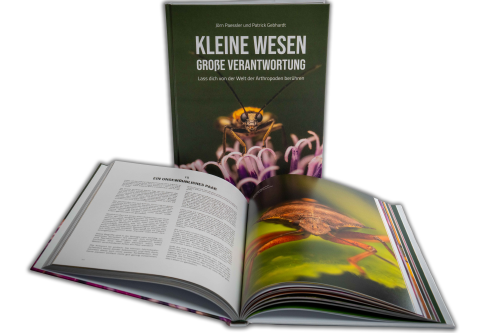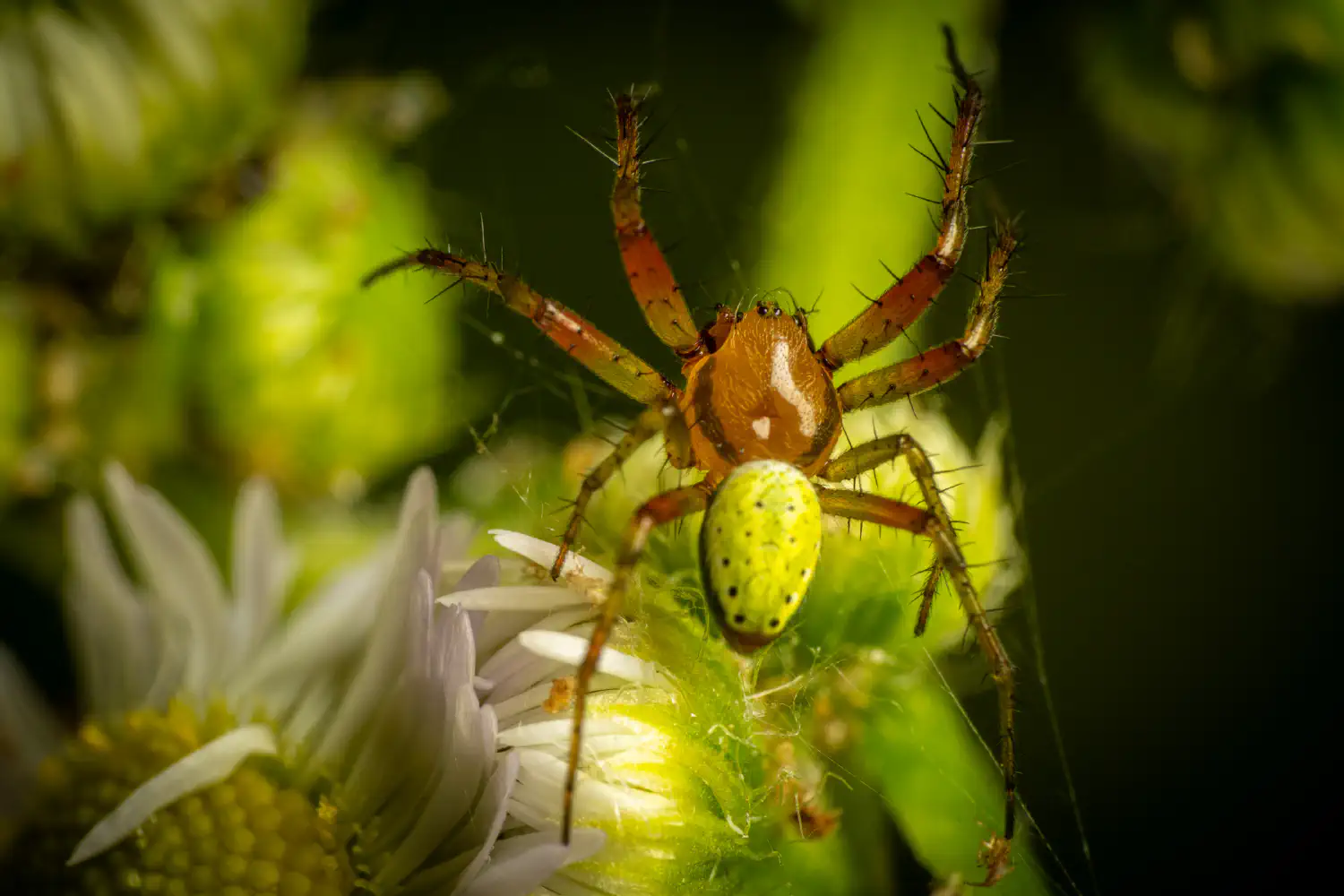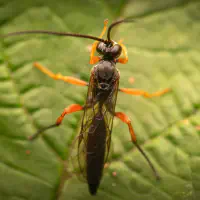The spider’s vacation in an apartment
Elio had had enough of nature’s feuds and battles. Anyone who thinks life in the wild—amidst grasses, meadows, and bushes—is peaceful, has clearly never fought for survival with only 4 millimeters of body length. You can endure it for a while, but every now and then, you need a break. The male Cucumber Green Spider was looking for exactly that: a short vacation, a safe retreat. Elio had always been a skilled hunter, weaving webs for daily hunts and relying on his color for camouflage. The spider was named after its orange-green hue—though Elio had never quite understood the fuss about Halloween. One thing was certain: the harsh life outdoors had worn him out. Every hunt, every fight, drained his energy and strength, and the constant danger of becoming prey himself gnawed at his nerves. So now, please, peace. A few quiet weeks without looming threats; the chance to simply breathe. Elio decided to become an illegal tenant in an old apartment in Leipzig. No rental agreement, not even tolerance—a life on just a few square centimeters. With a little luck, the residents would never even notice that Elio was letting his soul dangle there.
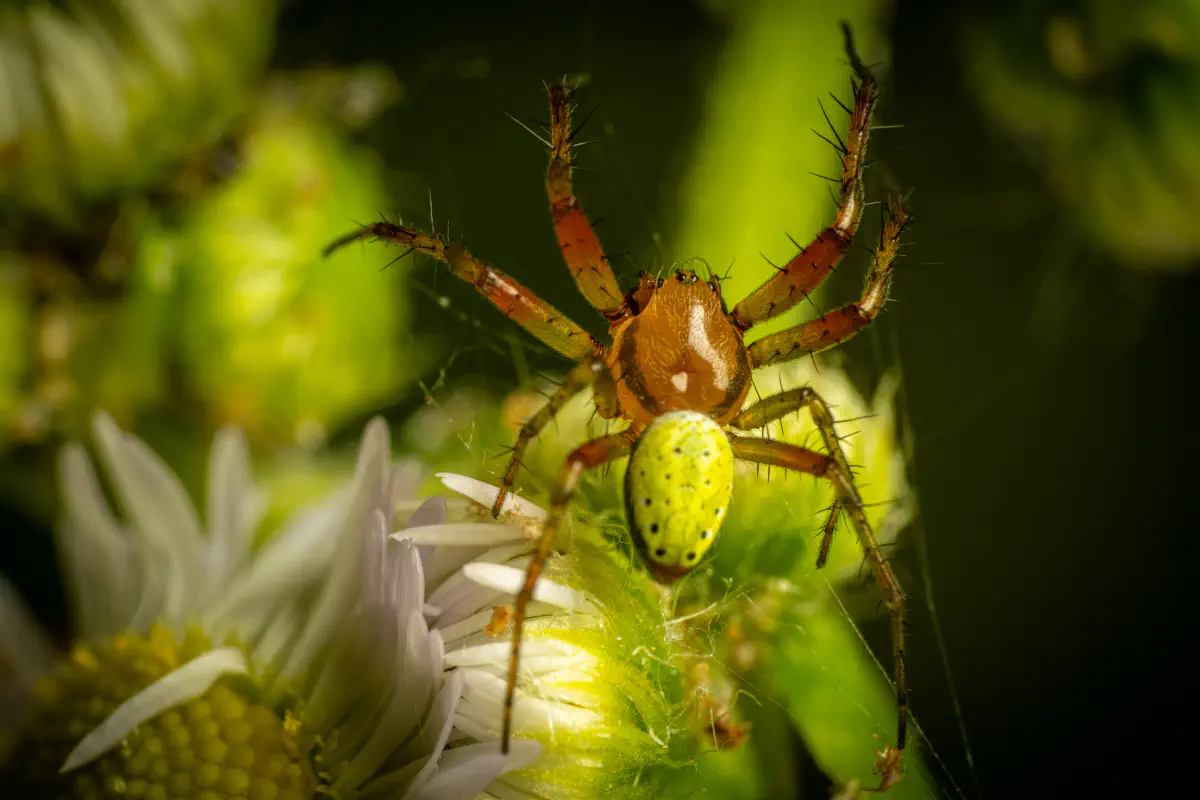
His move-in went unnoticed. Through a small gap in the window frame, he slipped into the lovingly furnished apartment. It was on the second floor, in a classic turn-of-the-century Leipzig building—creaky floorboards and high ceilings included. High ceilings meant safety, unless the humans owned a tall enough ladder. Elio chose his spot carefully: in the left corner of the living room, hidden behind a curtain rod, near a warm, softly humming lamp. Here, he could observe undisturbed and relax. In case of danger, it was easy to hide behind one of the thin stucco elements. This is bearable, he thought, and promptly slept through the rest of the day.
The apartment, where Elio’s refuge was tucked away, belonged to the Berger family. Their daily routines quickly became Elio’s new hobby. Human everyday life was far too interesting to ignore. There was Eva, the mother, often wearing her blonde hair in a ponytail. Stefan, the father, was a quiet man with small glasses that frequently slipped down his nose. Their two children, Lena and Ben, were eight and eleven years old and argued on the very first morning over who got to use the bathroom first. During the day, the apartment was usually empty, so Elio rested in his corner, enjoyed the warmth, and sometimes listened to the sounds of the street below. But in the evenings, when the family gathered at the large wooden dining table, he peeked down curiously from above. He quickly realized that his life in the wild wasn’t the only arena for daily battles. At the Bergers’, it wasn’t about survival, but their everyday problems were clearly visible.
When Eva and Stefan argued—which happened often—they did it quietly. Almost as if ashamed to let the children hear. The struggles of their lives wore them down: work, chores, the kids’ grades, money. Lena, the daughter, often felt misunderstood, and her brother hid behind his tablet. The spider observed all this, hanging from a thread whenever alone, lost in thought. The Bergers might not have been surrounded by beetles and hornets, but tension, fear, and misunderstandings were constant companions.
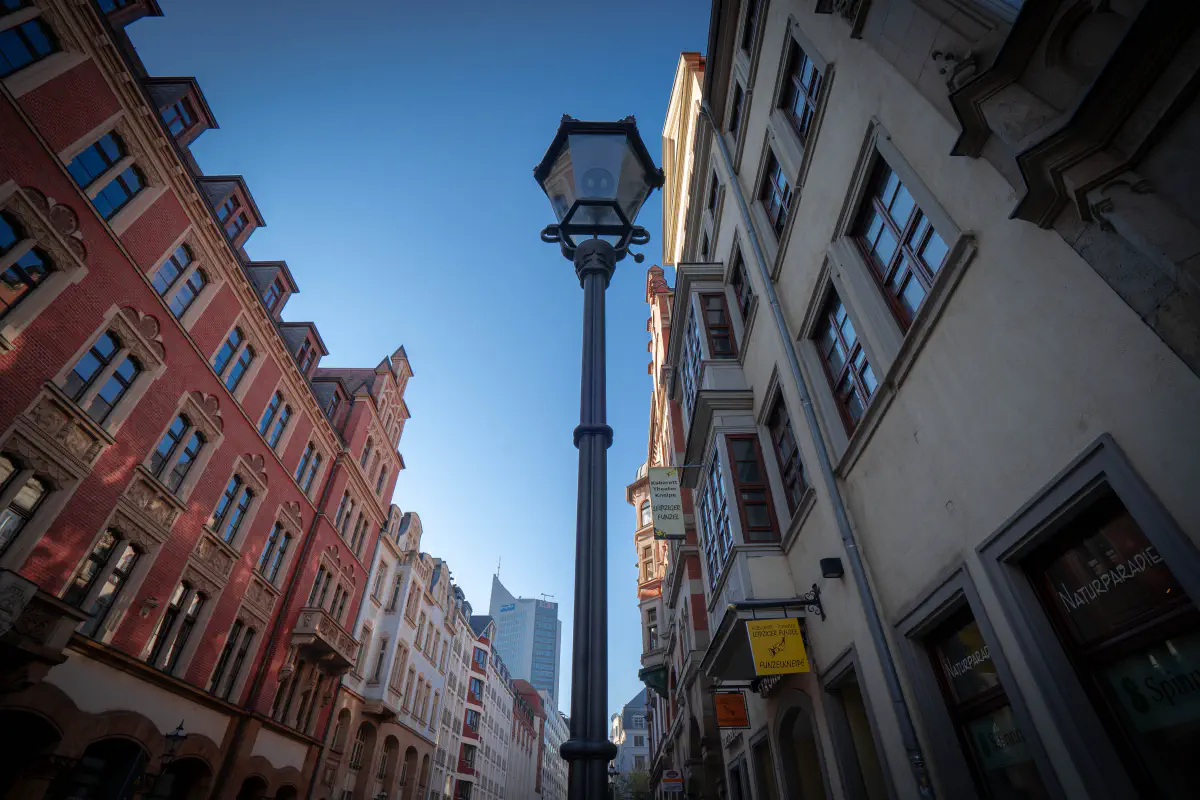
Spiders of Elio’s kind are known for their delicate webs, which often span no more than ten centimeters in diameter. Instead of hiding, they remain visible in the center of the web—their body coloration rendering them nearly invisible to prey insects. Elio had been spinning threads since his earliest memories; with so much practice, it had become second nature. One afternoon, as he was pondering the Bergers’ problems, he wove, completely absorbed, a delicate heart on the ceiling with thin threads. But instead of erasing his doodle as he usually did, Elio forgot about the heart. Only hours later, as Eva set the table for dinner, he remembered. But by then, it was too late.
What followed were many minutes of fear. If the Bergers discovered him, things could get dangerous. Elio would be forced to pack up and leave—or hide endlessly behind the stucco. After more than half an hour—dinner had ended, and the family was still at the table—Ben absentmindedly looked up, directly toward Elio’s hidden corner. “Lena, look! Up there on the ceiling!” he exclaimed, pointing. Lena sighed, annoyed, but followed her brother’s finger. Her face immediately lit up. “That looks like a heart. Who made it?” she asked in amazement. Elio had curled up and shyly peeked at the children from behind the curtain rod. Ben and Lena sat on the floor beneath the heart-shaped web, which shimmered silver in the lamp’s light. For the first time in days, the siblings spoke kindly to one another, without arguing. Lena believed the heart was a sign that something good was about to happen. Ben was convinced it was a secret message.
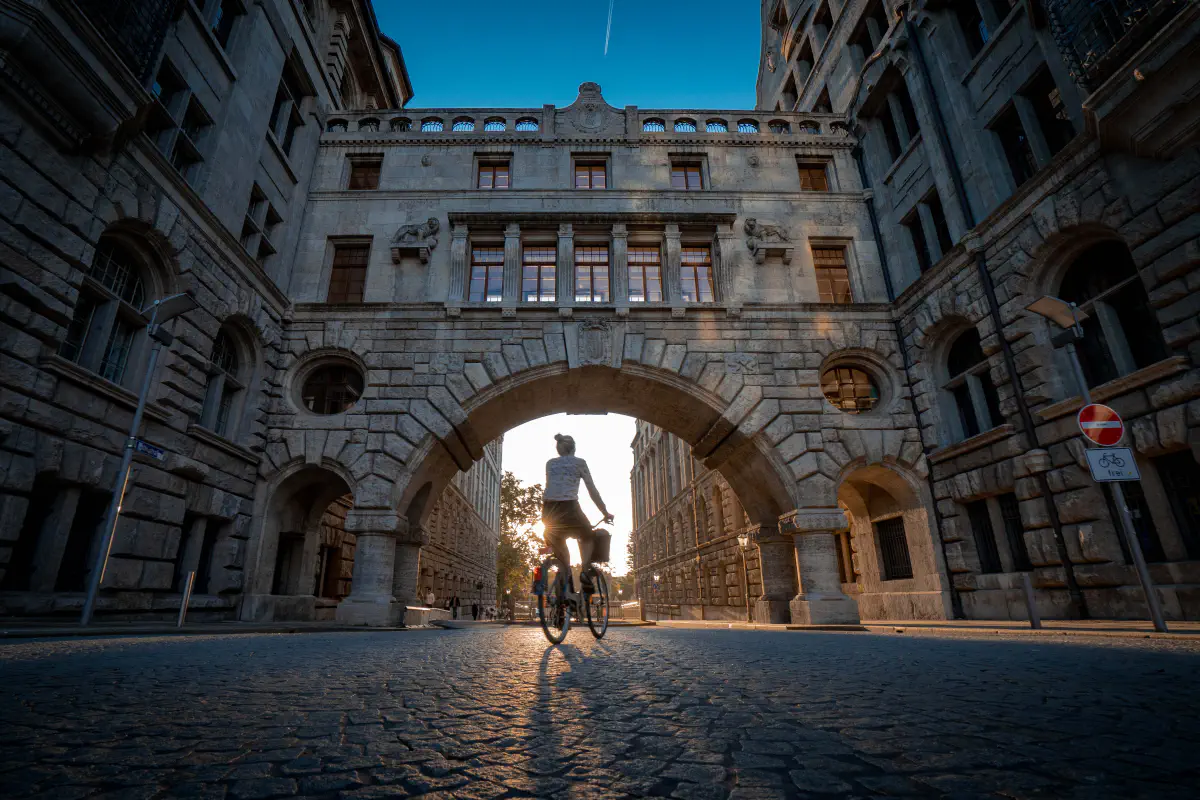
Elio suddenly felt warmth in his chest. The little heart made of his threads had created a strange effect—one he had never anticipated. The following night, while everyone was asleep, Elio patiently spun a star-shaped outline next to the heart. The star turned out even more delicate than the heart, its lines perfectly symmetrical. Morning came, and as the children ran out of their room, their eyes immediately turned upward. “Ben! Look, there’s something new! A star!” Lena exclaimed, excited. They rushed to their parents. “Did you make that?” Stefan asked, glancing at his wife. The signs on the ceiling had an effect no one could deny. From that moment on, they became Elio’s special task—a secret mission. Every night, he worked on new patterns. And—wanting to continue in safety—he always spun at night, quietly and cautiously. Each morning, the children eagerly awaited a new figure.
The spider wove, one after the other: a small moon, a spiral like a snail shell, and then the image of a flower—so delicate and detailed that the trembling of the fine threads resembled plants swaying in the wind. After a week of nightly creations, Elio noticed changes in Eva and Stefan, too. The couple now sat with their children in the evenings, puzzling together over the signs. Their voices were softer, and although Elio didn’t understand every word, their sentences sounded gentler than before.
Elio felt proud. Not just of his craftsmanship, but of what it was doing to the humans. The spider no longer felt like a secret tenant. Had he become something like an invisible friend? A quiet observer or hidden helper? Sure, he had grown tired of nature’s troubles—but what he had found here was more than peace and relaxation. More than just a quiet spot to feel safe. Weeks went by, and Elio had no intention of stopping his work; the designs grew more intricate and complex. His threads became denser, and sometimes they reflected the lamplight, illuminating the ceiling. Every morning, the Bergers waited excitedly for his newest piece. But the spider knew this couldn’t last forever. One day—it was inevitable—Elio would be discovered. And people are afraid of spiders, no matter how interesting their webs may be. If he wanted to survive, he would have to move on. Elio began preparing to return to nature.
On his last night, he worked on his greatest creation. Elio spun a web that was more than just a motif—something that couldn’t easily be put into words. It was as if he had captured all the things he had seen during his time with the Bergers in his silken threads. He wove memories and moments, glances and gestures, the family’s hopes and dreams, into a story made of thin filaments—so delicate that even his cautious steps made them quiver. But what exactly was hidden in it, only the family could decipher the next morning. It was their story. As the morning sun lit up the streets of Leipzig, Elio quietly slipped back out through the narrow gap in the window frame. His break had not been a restful vacation. He had found a mission. And it had given him the courage he needed—for his return to the rough, wild world of nature.

Little beings in print
Order our calendars and books today!
Compiled with love. Printed sustainably. Experience our little beings even more vividly in print. All our publications are available for a small donation.
